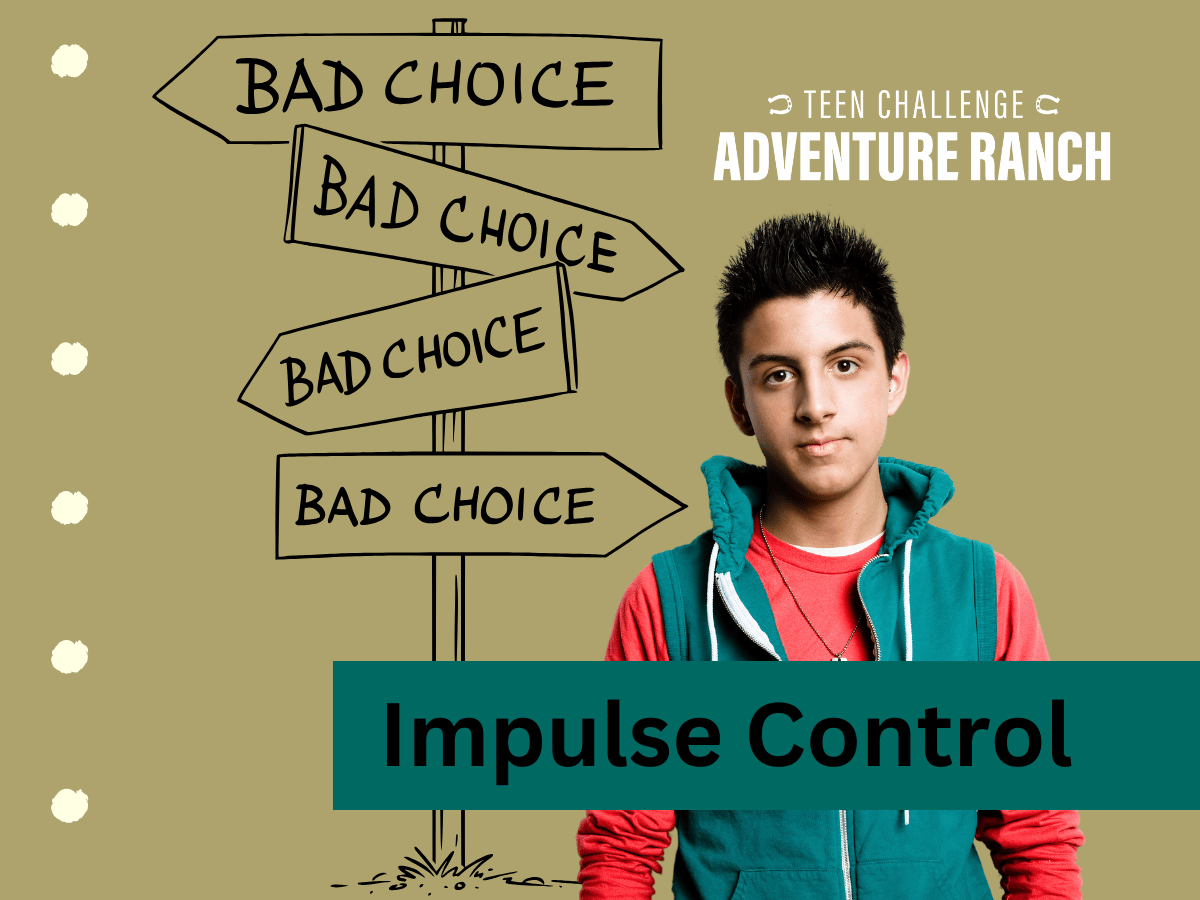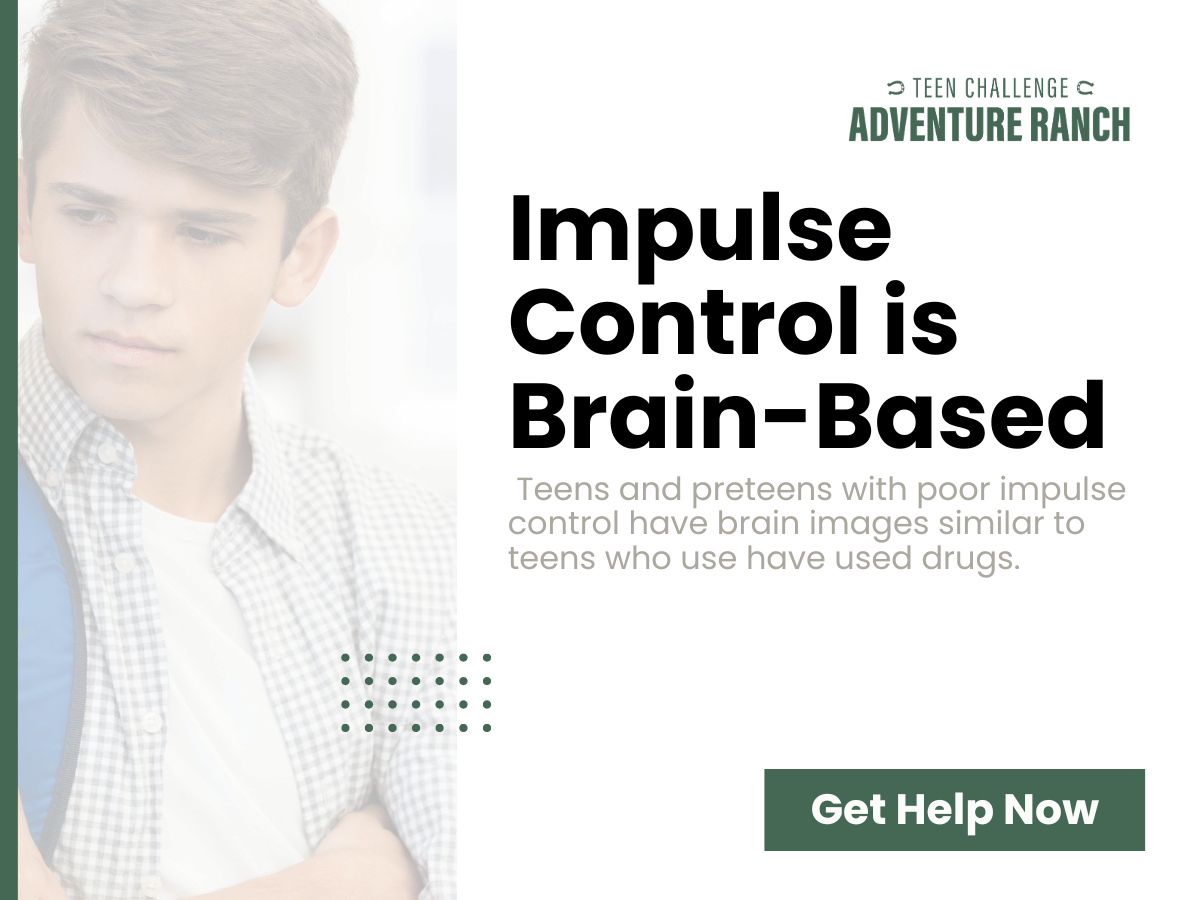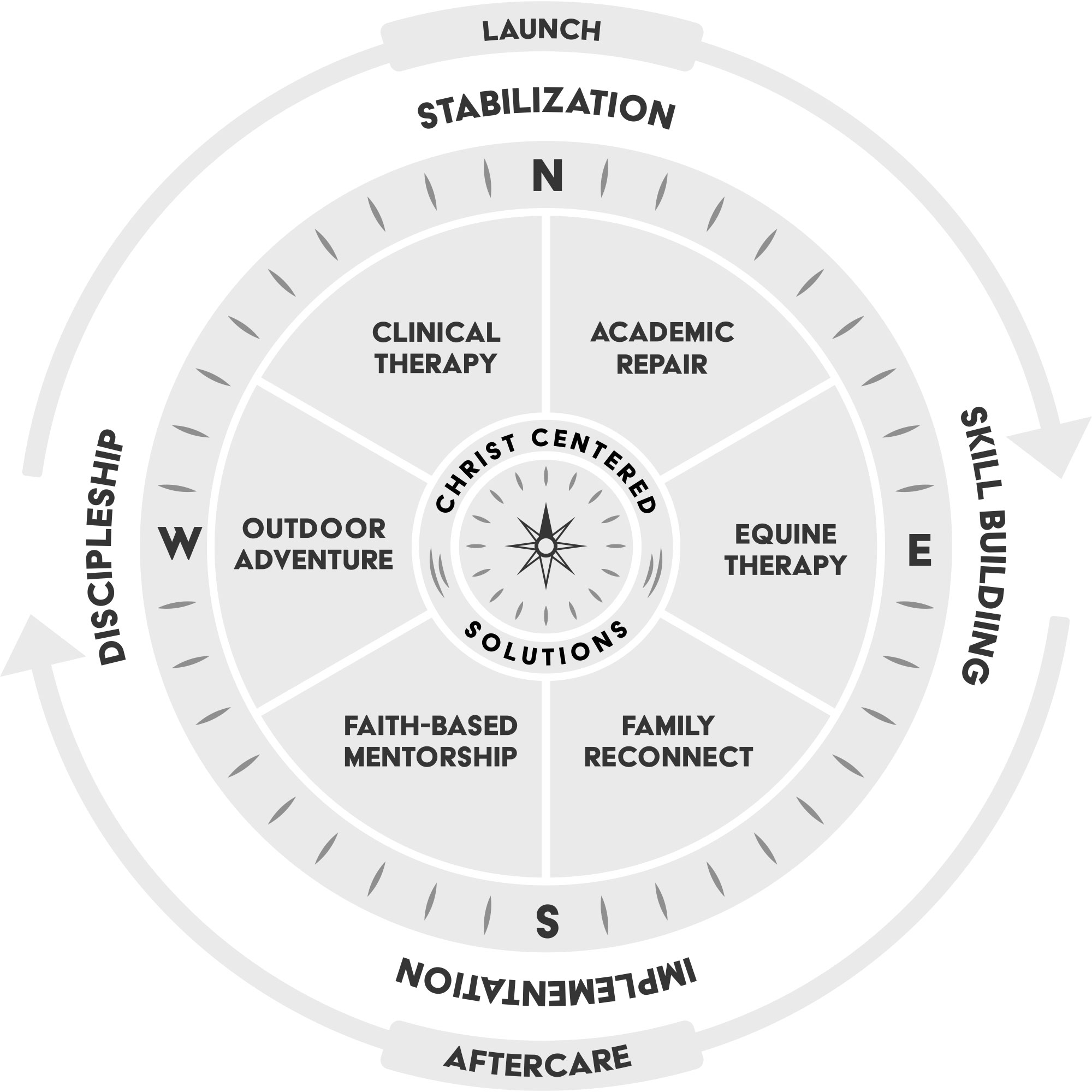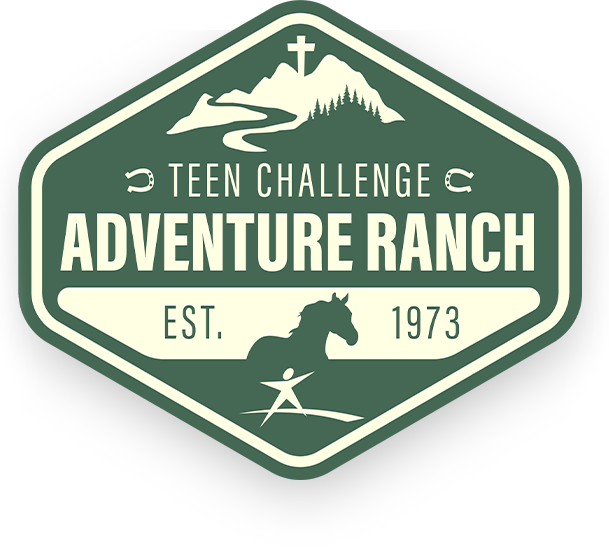Impulse Control Therapy
Teen Challenge Adventure Ranch is a Christ-centered residential treatment facility for teen boys ages 14-17. We provide trauma-based clinical therapy, outdoor adventure, individualized academics, and opportunities for self-growth and spiritual development to help teen boys regulate impulsive behavior.

Treating Impulse Control & Behavioral Problems in Teens
Impulsive behaviors in teenagers can manifest as difficulty in delaying gratification, acting without thinking about the consequences, and engaging in risky activities. Therapeutic intervention can help when this type of behavior becomes a danger to the teen or those around him.
Impulse control treatment for teens involves various therapeutic strategies and interventions aimed at helping adolescents learn to manage and regulate impulsive behaviors.

We provide a variety of therapeutic modalities designed to help teens recognize & regulate impulsive behavior.
Individual, Family, and Group Therapy Sessions Led by Licensed Christian Therapists
24-Hour Nursing and Medication Management
Individualized Academics with Support for Behavior-Driven Learning Needs
Daily Opportunities for Skill-Building with Intentional Activity Debriefs

+ A study comparing 1400 brain images of 14 year olds found that those with impulse control problems had similarities to those who had used drugs, indicating a strong correlation predicting future addiction behaviors.
Understanding High-Risk, Impulsive Behavior in Teens
Impulsive behavior, or the inclination to take action suddenly and without forethought or consideration of the consequences, can be dangerous. In teens, this type of impulsivity can stem from ongoing development of the brain’s prefrontal cortex. This is the part of the brain that is responsible for decision-making.
When impulsive behavior becomes frequent and is often paired with risk-seeking tendencies, the outcomes become increasingly dangerous.
Impulsive risk-seeking behavior might look like a teen that is experimenting with drugs. He might use often or try different combinations of drugs to produce a more intense high without considering the legal, health, or personal consequences. As a result of impulsive behavior, he is putting himself at risk for developing a life controlling addiction or suffering an overdose or personal injury resulting from his substance abuse.
What Impulsive Behavior Looks Like:
Promiscuous Sexual Behavior
Bullying, Aggression, or Fighting
Theft, Vandalism, or Criminal Activity
Disordered Eating Habits
Self-Harm & Suicidal Behaviors
Excessive Screen Time
Drug and Alcohol Abuse
Reckless or Impaired Driving
Gaming Addictions
When Is a Residential Treatment the Right Choice for Teens with Impulsive Behavior?
When your teens’ impulsive behavior is creating problems at home, help is available. A long-term residential therapy program can be an effective way to treat impulse control and behavior regulation problems by providing a safe space and structured growth opportunities.

Are behaviors severely impacting daily life?
When impulsive behavior begins to severely impact social, academic, or occupational functioning, treatment can help. The process typically begins with outpatient therapy, but if behaviors do not improve, residential treatment can provide a more immersive treatment experience.
Does the teen have more than one co-occurring diagnosis?
When more than one diagnosis is co-occuring, treatment becomes increasingly complex. These individuals often benefit from an immersive, residential treatment program that can tailor services to meet their unique needs. For example, if impulsive behaviors stem from past childhood trauma, a residential placement can support both root-cause interventions and the development of healthier coping strategies to stabilize behaviors.
Have outpatient treatment options previously failed?
For many, outpatient therapy provides enough support to overcome ADHD challenges. However, if a teens who have previously failed with outpatient services or who have had multiple short-term placements, often benefit from longer-term treatment like a residential program.
Is there an immediate risk of danger?
If behaviors pose an immediate risk to the individual or those around them, placement in a residential treatment program can help keep everyone safe.
Have Previous Treatment Options Failed?
Residential treatment is often most appropriate for individuals who have not seen sustained success with outpatient or short-term treatment options. The immersive, long-term approach of a residential treatment center can provide enhanced structure and support to facilitate an intense focus on recovery.
Why Choose Teen Challenge Adventure Ranch?
We provide holistic therapeutic interventions designed to stabilize behaviors, engage teens in therapeutic treatment, address root cause mental health issues, and build decisions-making and academic skills for long-term success. We only work with teenage boys.
Our impulse control treatment program focuses on helping boys understand their emotions and build skills that support healthier decision making. Our clinical team uses psychological evaluation, cognitive behavioral therapy (CBT), family therapy, mindfulness and relaxation techniques, along with a variety of facilitated opportunities to grow personally and spiritually.
Our six core areas of healing include:
- Clinical Therapy
- Individualized Academics
- Outdoor Adventure
- Equine Therapy
- Family Involvement
- Spiritual Growth



